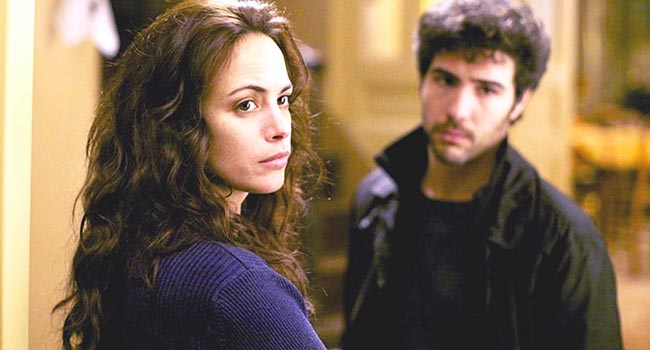
Asghar Farhadi’s follow-up to unanimous critical darling A Separation proves cultural politics are no crux to his brand of morally gripping storytelling.

Asghar Farhadi’s follow-up to unanimous critical darling A Separation proves cultural politics are no crux to his brand of morally gripping storytelling.
For many (myself included), the work of Iranian director Asghar Farhadi was relatively unfamiliar before a little film called A Separation rode on a huge wave success; from unprecedented victory in every major category at the Berlinale Film Festival, to an Oscar for Foreign-language feature a whole year later. As a result, worldwide audiences were exposed to a kind of intellectually, culturally and morally even-handed cinema marked by a direct visual approach and equally balanced, literate screenwriting. To those who have yet to see the director’s About Elly — where a L’Avventura-esque mystery eventually reveals itself as an incisive and finally humane look at contemporary Iranian society — I cannot recommend it enough. But by the same token, About Elly’s embryonic formal and tonal strategies for what would later blueprint A Separation become clear in hindsight. The lingering question on the minds of most remained whether such clarity and slow-burning intricacy in Farhadi’s stories could persist in absence of the intricate nuances of Iranian life he obviously knows so well. Farhadi’s answer to that is The Past (Le Passé).
Set in Paris, The Past opens on Marie (Bérénice Bejo, The Artist), a French woman grappling with her myriad of relationships at various points of burgeoning and disintegration. Chief among them is the visit from her husband Ahmad (Ali Mosaffa), who is returning to France to sign divorce papers after four years back in his native Iran. Complicating matters more, Marie plans to marry Samir (Tahar Rahim, A Prophet), whose child she is pregnant with. Both Marie and Samir bring children from previous romances to densify the relational web Farhadi spins, and as the story progresses Marie’s eldest, Lucie (Pauline Burlet) plays an especially pivotal role as we learn of her possible involvement with Samir’s present wife, who is eight months comatose. All of that sounds cinematically heightened because it is. But unlike the matters of faith and custom that so drove the dramatic urgency of his earlier work, Farhadi here seems to relish the opportunity to take an otherwise melodramatic premise and make it agonisingly, persistently relatable, regardless of cultural context.

It’s not my aim to delve too much into the plot, as many of The Past’s pleasures are drawn not merely from the revelations that Farhadi offers (stunning as they are), but the simultaneous deftness and weight with which he announces them: the director’s inherent ability to doubly affect our minds and hearts, to wring empathy from the brink of apathy, is so evident through The Past’s deliberate 130 minutes. The escalating tension that A Separation played straight and fast is here rendered rather more exponentially: curiosities and twists in the narrative are slower to creep in and more pronounced in their unraveling. This has led some to criticise the third act that plays overtly dramatic, but the crescendo that forms is a result of a more patient, more measured setup—so it’s only natural that once those emotional blows arrive, they seem to land harder.
Farhadi is helped in sticking said moments by an ensemble of performances that play like a well-pitched orchestra, Burlet and Elyes Aguis (as Samir’s young son Fouad, quietly absorbing each familial interaction to form his own worldview of death and consequence) offering breadth beyond their years; Bejo’s elastic, rangy Marie providing sharp contrast to both her silent, charming breakout role in The Artist and her co-star Rahim. In the thankless role of the imposing fourth wheel to an existing (though fractured) family unit, Rahim takes his one-dimension and makes it many, playing Samir’s troubled fatherhood, splintered devotions and not inconsequential guilt in a manner so implicitly interiorized that it’s perhaps the most impressive part of the film.
For all the histrionics that threaten to topple The Past overboard, Farhadi ends the film on a contemplative note that revisits (no pun intended) the multiple thematic readings of its aptly abstract title. It gives away nothing to reveal that the closing scene features Samir at his wife’s bedside, speaking though he knows she can’t hear, and asking though he knows she can’t do — a silent, microcosmic moment that flawlessly summarises the film, yet leaves audiences in perpetual wonderment. If my party line here is that The Past is great precisely because it isn’t overly indebted to A Separation, then I’m thankful that they still share instances of Farhadi’s profound ability to close a movie out.